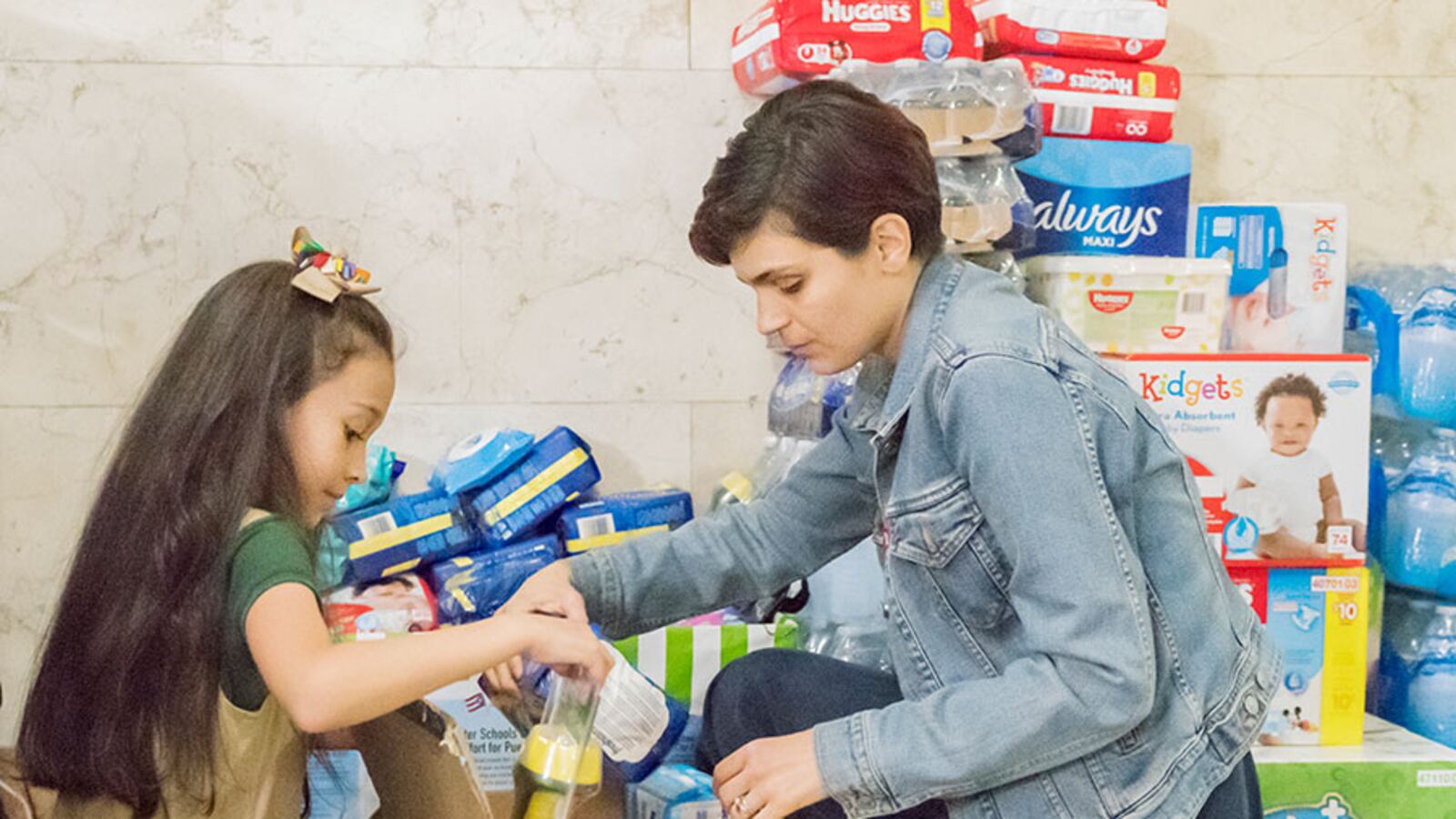Just weeks after Hurricane Maria traced a deadly path across the Caribbean, The New American Academy Charter School in Flatbush, Brooklyn got a call.
It was a family member looking for a school for two young relatives after their home on Dominica was wrecked, along with most of the small island.
Before long, the students were enrolled in kindergarten and first grade. The school quickly gave the family a scholarship for after-school care and provided free uniforms — even including new shoes, socks and underwear.
“They lost everything,” said Lisa Parquette Silva, the school’s headmaster. “As soon as I heard these two students needed a place, it was not a question.”
New York City is preparing to potentially welcome an influx of students fleeing Puerto Rico and the Virgin Islands after the powerful hurricane struck in September, knocking out power grids and flattening homes. The leaders of the country’s largest school system insist they are ready for whomever comes.
“We are going to do whatever we can to support and accommodate them,” Mayor Bill de Blasio said at a recent press conference, “starting with our public schools.”
Hundreds of thousands could flee Puerto Rico. As home to some of the largest Caribbean communities on the mainland, New York City is a logical place for many of those people to land. They are likely to bring with them an untold number of children who need to enroll in schools — though officials say it’s hard to know how many until they actually arrive.
Already, the Orlando school system reported enrolling almost 300 students from Puerto Rico as of last week. In Miami-Dade, the number was around 200, according to The 74.
In New York City, schools have not yet seen a significant uptick in enrollment, officials said. The few students who have arrived have landed in Bronx and Brooklyn schools, they added.
Serving those students will likely require a host of extra resources. The Miami-Dade school system is expecting to spend $2,200 for every student the district takes in, according to the Wall Street Journal.
New York City schools chancellor Carmen Fariña said the city has sent representatives to Puerto Rico to understand how the situation there could impact schools. Meanwhile, the education department has begun to survey principals here to find out which schools have space to take in new students — and assured those schools that they would get extra funding. Guidance counselors are being trained to meet storm survivors’ unique needs.
“Money will be allotted to those schools to be able to service those children,” Fariña said at the press conference, “understanding in many cases there may be extra support needed for families and trauma.”
The state education department recently put out guidance for schools, saying children who have fled a disaster are likely protected by federal law for homeless students. Under the law, districts can waive documentation requirements for school enrollment — which the city is doing at its Family Welcome Centers — and students are eligible for free meals.
Nicholas Tishuk, executive director of Bedford Stuyvesant New Beginnings charter school in Brooklyn, said he is already fielding calls from people who are looking for schools as they consider whether to bring over family members from Puerto Rico.
The independent charter school recently packed a van with donated lanterns, batteries and water to be shipped to the island. School leaders have also put the word out that they are ready to enroll students impacted by the storm.
If the school runs out of space, Tishuk hopes it can still serve as a clearinghouse to put families in touch with other local options.
“A school can be a very powerful place to get extra resources,” he said, noting that New Beginnings has a bilingual staff that regularly collaborates with social-service agencies. “Even if it’s not our school, you should reach out to a school that can help you connect to those resources.”
Schools that take in displaced students will most likely have to offer bilingual classes and provide counselors who can support children who have been separated from their parents and are living in the city with relatives.
Eve Colavito, director of schools for DREAM charter school in East Harlem, said one of the most important things schools can provide is stability. The pre-K through ninth-grade school enrolled a middle school student from Puerto Rico this week.
“Our goal initially,” she said, “is to make school as normal and predictable as possible for them.”

